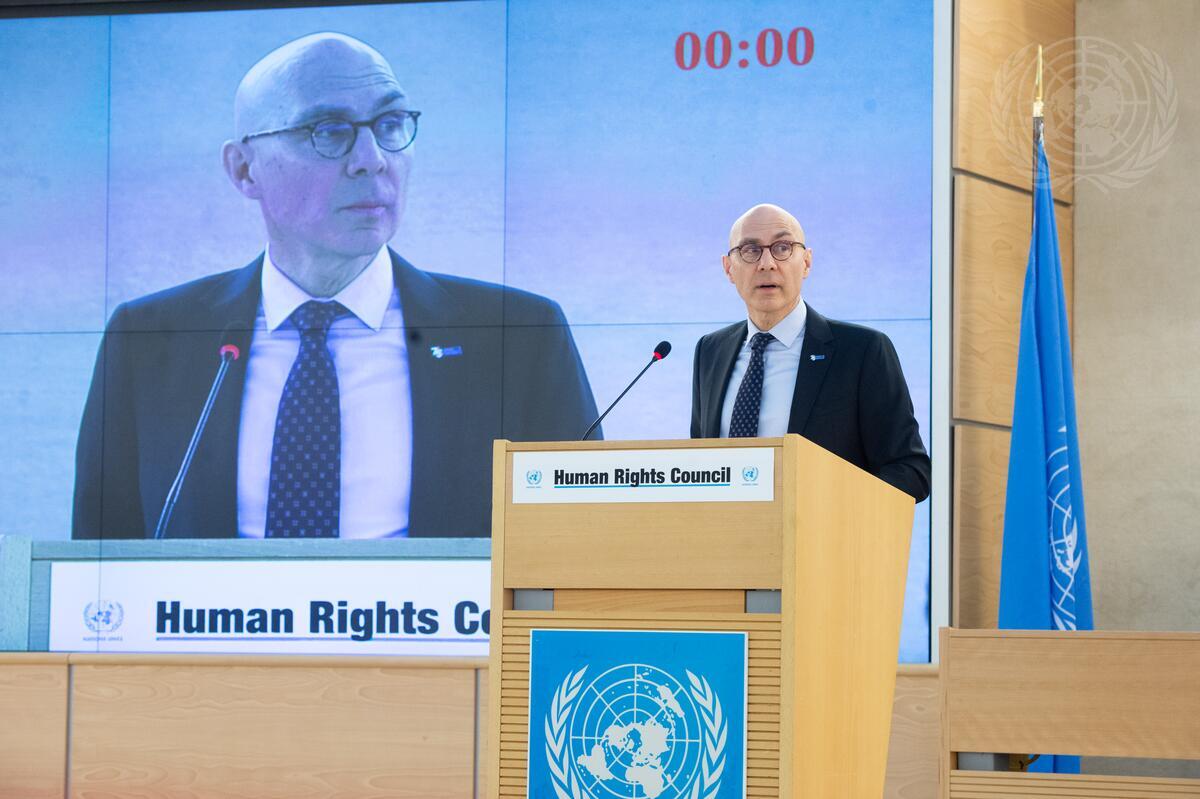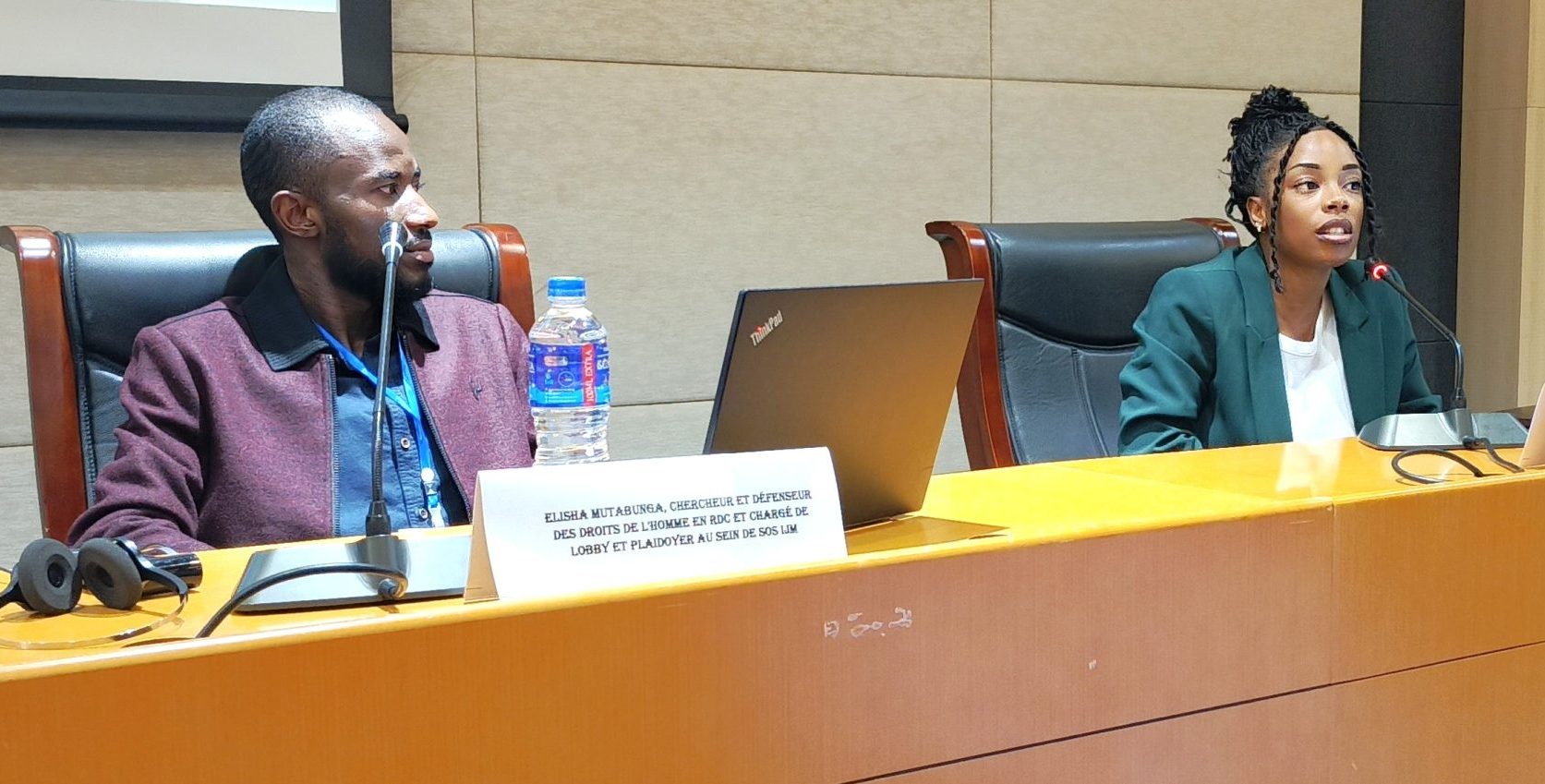The UN High Commissioner for Human Rights, Volker Türk, should provide a public update of measures taken by the Chinese government and by his office to address the human rights situation in Xinjiang, Human Rights Watch, Amnesty International, ISHR, and the World Uyghur Congress said today, releasing a series of translations of the report by his office on Xinjiang published in 2022.
The Office of the High Commissioner’s 2022 report concluded that violations in the region ‘may constitute international crimes, in particular crimes against humanity’. The ongoing absence of public reporting by the High Commissioner to follow-up the atrocity crimes documented by his own office risks undermining the trust placed in his office by victims and survivors. At the same time, UN Member States need to take more determined action to fight against impunity.
'The publication of the UN human rights office’s report was a landmark moment for highlighting the gravity of human rights violations in Xinjiang. Now it’s up to the UN High Commissioner to make full use of that report to improve the situation for Uyghurs and other Turkic Muslims in Xinjiang.'
Elaine Pearson, Asia director at Human Rights Watch
In August 2023, the High Commissioner’s spokesperson stated that the situation in Xinjiang ‘remains of concern’ and stressed that the August 2022 assessment was ‘clear on the need for accountability. We continue to stand by that, publicly and bilaterally.’ In March 2024, the High Commissioner urged the Chinese government to implement recommendations of his office and other UN bodies, including those from the 2022 report.
In his opening remarks at the UN Human Rights Council on 18 June, the High Commissioner said he had ‘continued to engage’ with the Chinese government on ‘a range of human rights issues’ including ‘the serious concerns […] in the Xinjiang region’. He raised concerns over the national security laws in Hong Kong and individual cases of concern, and deplored the sentencing of the arbitrarily detained Chinese human rights defenders Huang Xueqin and Wang Jianbing (who went unnamed).
However, he did not provide any specifics about his engagement with the government, a substantive update on the situation in Xinjiang, nor an assessment of the implementation of the report recommendations by his office. Nearly two years on, it is imperative that he and his office provide details on their efforts to prevent, and seek accountability for, crimes against humanity and other human rights violations and abuses.
Since the release of the August 2022 report, the Chinese government has continued to arbitrarily imprison hundreds of thousands of Uyghurs and to erase expressions of Uyghur identity as part of its crackdown on the region. On 31 May, Beijing rejected nearly 30 Universal Periodic Review recommendations on the Uyghur region, and has yet to implement dozens of recommendations from numerous UN human rights experts and committees, including the Committee on the Elimination of Racial Discrimination.
'It is crucial that the Office ensures appropriate follow up on the report, particularly as we approach the second year since the publication. This is a key opportunity for the high commissioner to show that atrocity crimes can be addressed meaningfully at the UN. The international community cannot afford to overlook this impunity.'
Zumretay Arkin, director of global advocacy at the World Uyghur Congress
Rights groups have consistently called on the High Commissioner and his office to publicly brief the international community on the Xinjiang report, and take concrete action to follow up on the recommendations and advance accountability for any international crimes and other serious human rights violations in China.
They have also urged States at the Human Rights Council to take overdue action to open a comprehensive independent international investigation, with a similar call coming on three occasions from United Nations experts on June 2020, June 2022, and September 2022.
Despite a nearly successful effort to put China formally on the agenda of the UN’s top rights body in October 2022, little further action has been taken to follow up.
'The UN's Xinjiang report is an irrefutable milestone: for millions of Uyghur victims seeking justice, and for all those, across the globe, who firmly believe that even the powerful must be held to account. Despite Beijing's efforts to discredit it, the Xinjiang report and its recommendations chart the way forward for meaningful human rights change in the Uyghur region.'
Raphael Viana David, China programme manager at the International Service for Human Rights
To commemorate the two-year anniversary of the report’s release, Human Rights Watch, Amnesty International, ISHR, and the World Uyghur Congress, jointly released on 20 June informal translations of the landmark 2022 report into the remaining five UN languages: Arabic, Chinese, French, Russian, and Spanish. The release of these translations, which are available below, aims to foster inclusivity and broaden the discussion of China’s human rights violations, facilitating cross-regional follow-up efforts.
They are available on the links below:
Visual summaries of the report are also available in Chinese, English, Spanish, and French.
Since 2018, Human Rights Watch, Amnesty International, International Service for Human Rights and the World Uyghur Congress, have campaigned to push the Human Rights Council and other UN bodies to document and respond to growing evidence of atrocity crimes in China, and to disseminate these findings globally.
On 20 June, Human Rights Watch, Amnesty International, International Service for Human Rights, and the World Uyghur Congress will host a side event on necessary follow-up action to address and advance accountability for rights abuses across China at the UN in the context of the adoption of China’s Universal Periodic Review. The event will also be an opportunity to present the informal translations of the UN Xinjiang report to States, civil society, media, and other UN actors, and discuss recommendations for follow up.
'We urge States at the Council to put principles first. The second anniversary of the report’s release should be an opportunity to build momentum for an independent international mechanism to monitor, report on, and investigate allegations of severe human rights violations, including crimes against humanity in Xinjiang. No State, no matter how influential, should be shielded from accountability for human rights violations.'
Sarah Brooks, China director at Amnesty International
Article also available in




